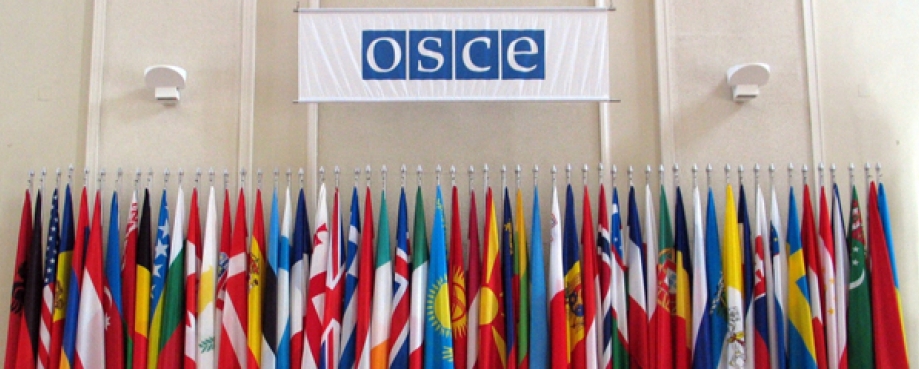
Last week I attended and presented a paper at a Conference of the OSCE – the Organisation of Security Cooperation in Europe. I knew almost nothing about this rather strange body based in Vienna, established in the early '70s as a post-Cold War multilateral forum for dialogue between the East and West on peace. There are 57 member states that include the USA, Russia, large and small countries from Europe and West Asia.
There were over 300 delegates - ambassadors and political representatives from member states, civil society organisations, the private sector, experts and academics.
This particular meeting was convened by the Office of the Special Representative and Coordinator for Combating Trafficking in Human Beings and my panel focused on ethical sourcing to prevent human trafficking.
The paper commissioned by the OSCE and launched at this session is excellent, and framed the discussion: “Ending Exploitation Ensuring that Businesses do not Contribute to Trafficking in Human Beings: Duties of States and the Private Sector”.
I highly recommend it – particularly because of how topical it is to ETI members today. It deals with the complex issues of corporate liability in respect to demand for forced labour, and the role of the state in regulation. It is particularly timely with the agreement by government to include a transparency in supply chains clause in the UK Modern Slavery Bill. The main author is Mike Dottridge, a respected expert on human and child trafficking, who spoke earlier this year at ETI’s all-day meeting on Modern Slavery.
I shared a panel with some interesting people and learned about a number of examples and initiatives of interest, including the Coalition of Immokalee Workers who have launched a Fair Food Programme. It’s a worker-driven workplace monitoring system that has been credited with “transforming the Florida tomato industry from being the worst work environment in American agriculture to being the best” in only three years”. The programme has managed to get many of the large food brands such as Yum Foods, Taco Bell, Walmart, McDonalds and others to buy their Florida winter tomatoes only from growers that are part of this programme.
My other co-panelists included a union representative for the fishing industry in Russia; a data specialist from a legal firm in the USA, and the Institute for Human Rights & Business.
My paper (unsurprisingly) focused on the value of multi-stakeholder initiatives and the centrality of trade unions and worker-centred responses to preventing trafficking and forced labour. Here’s a link to it.
The upshot? For many governments attending the meeting, this was new and unfamiliar territory. Many were puzzled and intrigued by this idea of voluntary codes of practice, by the discussion around the role of the private sector and government addressing human and labour rights issues. Hopefully there will be the opportunity to share insights and learning with countries like Kazakhstan, Serbia, Ukraine, Moldova and others.
We often fly over some of these places en-route to China, India and other sourcing countries in Asia, but we know little about them. In a number of these countries, there is little space for civil society, a lack of independent media and limited freedom of speech association, yet they face the same risks and challenges as other countries, much of which remains invisible.
I always welcome the opportunity to have all my assumptions and ideas challenged by different contexts and conversations. I realise how much there is to learn, how little I know, how much value lies in sharing ideas and experiences. I am fascinated by how change happens – what levers and incentives might work in each context at different times; why some things matter more than others in different places. But one thing I do know is there is a long way to go to improve respect for workers rights worldwide.
